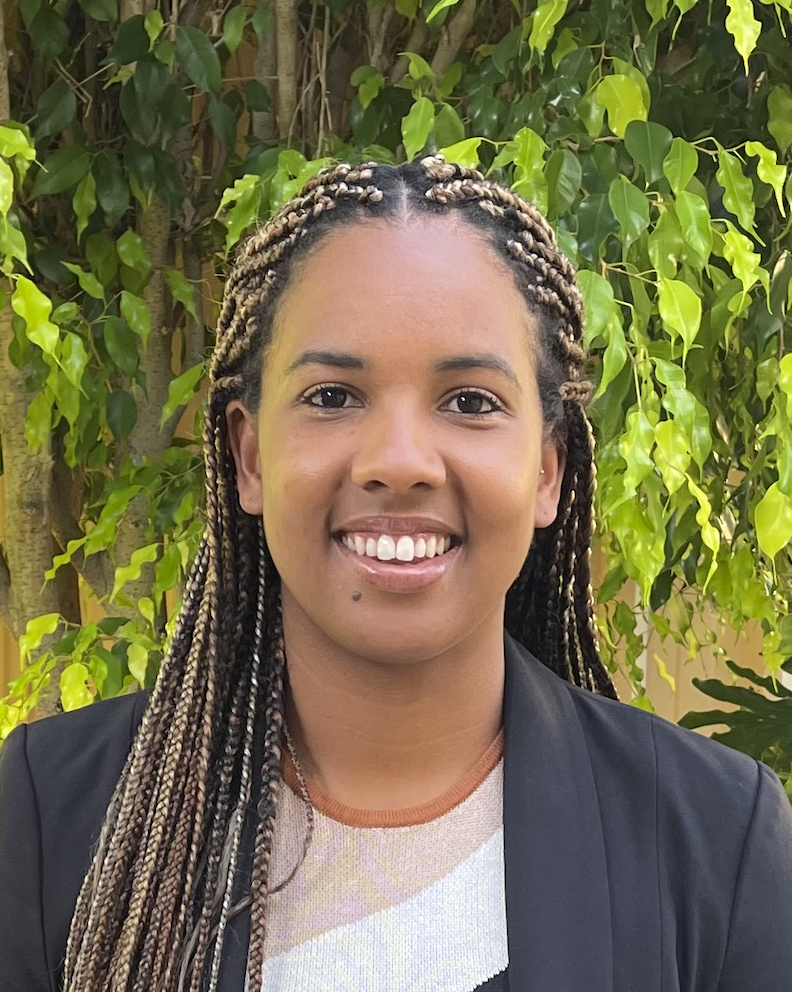
Keywords
Biography
Dr Kemi Wright is a Senior Lecturer and the Program Authority for Exercise Physiology in the School of Health Sciences. Her research and clinical interests are focused on the role and implementation of exercise for the physiological and/or psychological benefit in special populations including children and youth, mental illness, and chronic disease. She completed her PhD at The University of Western Australia which focused on creation and...view more
Dr Kemi Wright is a Senior Lecturer and the Program Authority for Exercise Physiology in the School of Health Sciences. Her research and clinical interests are focused on the role and implementation of exercise for the physiological and/or psychological benefit in special populations including children and youth, mental illness, and chronic disease. She completed her PhD at The University of Western Australia which focused on creation and implementation of a family-based community intervention study to improve the physical literacy and health of children with emotional, behavioural and/or neurodevelopmental problems. Alongside her own research, she supervises doctoral and research students in the field of paediatrics, exercise and mental health. Her previous appointment with the South Metropolitan Health Service saw her lead the establishment of the first clinical exercise service pathway in Western Australia for in-patient and outpatient mental health consumers to improve their physical and mental health outcomes. Outside her professional role, she is the Director of Thriving – “Building Strong and Healthy Young People through Exercise” which is an established exercise charity that utilises exercise to improve the health outcomes of children and young people. In this role she has established and maintained numerous community partnerships including collaborations with Telethon7, WA Drug and Alcohol Service (Mental Health Commission) and community health providers.
My Grants
2022: Healthway- Physical activity for trans and gender diverse young people ($ 96000; Service and Research)
2013– 2022: Telethon7 Trust Grants (confidential amount), including Thriving: Building strong and healthy young people through exercise (service & research grants), Auditory processing and rhythmic exercise (ResearchGrant), Thriving Mental Health First Aid Training (Service), Mental Health Movement Program (Service)
2020: Youth Engagement Grant ($9,500), Department of Communities
2017: Commonwealth Bank Community Grant ($27,900) “Thriving – Drug & Alcohol Youth Services Exercise Collaboration”
2016: Evaluating physical activity outcomes of children following a physical literacy intervention utilising parent coaches. ESSA Clinical Exercise Physiology Grant, AU$16,000
My Qualifications
Doctor of Philosophy (University of Western Australia, 2021) Thesis Title- “Thriving Families: Improving physical literacy outcomes in children with neurodevelopmental, emotional and/or behavioural problems”
Graduate Certificate in Tertiary Teaching (University of Western Australia, 2018)
Master’s Preliminary by Research (University of Western Australia, 2012)
BSc. Exercise Rehabilitation (University of Western Australia, 2011)
BSc. Exercise & Health (University of Western Australia, 2010)
My Awards
2018- Winner – Thriving DAYS Exercise Program, WA Alcohol and Other Drug Excellence Awards – Youth
2012- Robin Moss Prize – University of New South Wales
My Research Activities
Publications:
- McMahen, C., Wright, K., Stanton, R., Lederman, O., Rosenbaum, S., McKeon, G., & Furzer, B. (2022) Outcome assessments used in studies examining the effect of prescribed exercise interventions for people living with severe mental illness, a scoping review. Mental Health and Physical Activity, 22, 100438.
- Furzer, B., Rebar, A., Dimmock, J. A., More, A., Thornton, A. L., Wright, K., Colthart, A., & Jackson, B. (2021). Exercise is medicine… when you enjoy it: Exercise enjoyment, relapse prevention efficacy, and health outcomes for youth within a drug and alcohol treatment service. Psychology of Sport and Exercise, 52, 101800.
- Lederman, O., Furzer, B., Wright, K., McKeon, G., Rosenbaum, S., & Stanton, R. (2021). Mental Health Considerations for Exercise Practitioners Delivering Telehealth Services. Journal of Clinical Exercise Physiology, 10(1), 20–28.
- Wright KE. ‘Exercise for Kids: Mental Health Chapter’ E-book by Exercise & Sports Science Australia. (2020)
- Wright, K. E., Furzer, B. J., Licari, M. K., Dimmock, J. A., Jackson, B., & Thornton, A. L. (2020). Exploring associations between neuromuscular performance, hypermobility, and children’s motor competence. Journal of Science and Medicine in Sport, 23(11), 1080–1085.
- Furzer, B. J., Wright, K. E., Edoo, A., & Maiorana, A. (2020). Move your mind: embedding accredited exercise physiology services within a hospital-based mental health service. Australasian Psychiatry, 103985622094303.
- Wright, K. E., Furzer, B. J., Licari, M. K., Dimmock, J. A., & Jackson, B. (2019). The effect of parental logistic support on physical activity in children with, or at risk of, movement difficulties. Journal of Science and Medicine in Sport, 23(4), 372–376.
- Fibbins, H., Lederman, O., Morell, R., Furzer, B., Wright, K., & Stanton, R. (2019). Incorporating Exercise Professionals in Mental Health Settings: An Australian Perspective. Journal of Clinical Exercise Physiology, 8(1), 21–25.
- Wright, K. E., Furzer, B. J., Licari, M. K., Thornton, A. L., Dimmock, J. A., Naylor, L. H., Reid, S. L., Kwan, S. R., & Jackson, B. (2018). Physiological characteristics, self-perceptions, and parental support of physical activity in children with, or at risk of, developmental coordination disorder. Research in Developmental Disabilities, 84, 66–74.
- Furzer, B. J., Bebich-Philip, M. D., Wright, K. E., Reid, S. L., & Thornton, A. L. (2018). Reliability and validity of the adapted Resistance Training Skills Battery for Children. Journal of Science and Medicine in Sport, 21(8), 822–827.
- Bebich-Philip, M. D., Thornton, A. L., Reid, S. L., Wright, K. E., & Furzer, B. J. (2016). Adaptation of the Resistance Training Skills Battery for Use in Children Across the Motor Proficiency Spectrum. Pediatric Exercise Science, 28(3), 473–480.
- Furzer, B. J., Ackland, T. R., Wallman, K. E., Petterson, A. S., Gordon, S. M., Wright, K. E., & Joske, D. J. L. (2016). A randomised controlled trial comparing the effects of a 12-week supervised exercise versus usual care on outcomes in haematological cancer patients. Supportive Care in Cancer, 24(4), 1697–1707.